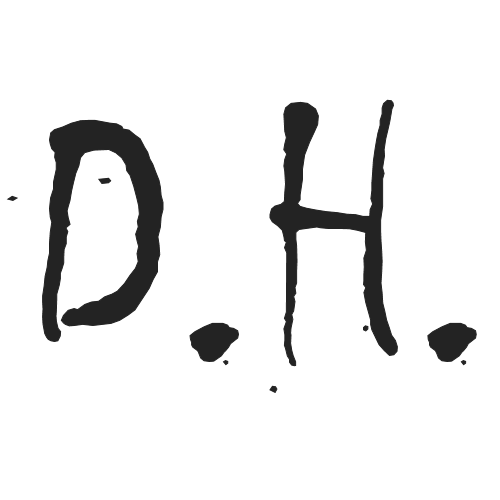Dark Humor Def: The Ultimate Guide To Understanding The Jokes That Make You Squirm
You’ve probably heard someone say, “That’s dark humor,” and you’re left scratching your head, wondering what exactly they mean. Dark humor def isn’t just about laughing at the wrong time—it’s an art form that takes the darkest corners of life and turns them into something funny. But why do we do it? And is it okay to laugh at death, tragedy, or suffering? Let’s dive in and find out.
Dark humor has been around for centuries, and it’s not going anywhere anytime soon. People love to joke about things that scare them, confuse them, or make them uncomfortable. It’s like a coping mechanism wrapped in a punchline. But before we get too deep, let’s break it down. Dark humor def isn’t just about being edgy—it’s about finding humor in the things that most people would rather avoid talking about.
Now, you might be thinking, “Is it really okay to laugh at someone else’s pain?” That’s a great question, and we’ll get to that later. But first, let’s explore why dark humor exists, how it works, and why some people absolutely adore it. Spoiler alert: It’s not for everyone, but for those who get it, it’s pure gold.
Read also:Unveiling The Magic A Firsttime Experience With The Bee Gees
What is Dark Humor Def Anyway?
Dark humor def, at its core, is the act of making jokes about serious, sensitive, or taboo subjects. Think death, illness, war, tragedy—you name it. It’s not your typical knock-knock joke. Dark humor pushes boundaries, challenges norms, and sometimes leaves you questioning your own sense of morality. But don’t worry, we’re not here to judge. We’re here to understand.
So, why do people use dark humor? Well, it’s often a way to deal with the tough stuff in life. When something feels overwhelming, laughing about it can make it feel a little less scary. It’s like saying, “Hey, I see this thing that terrifies me, but I’m going to face it head-on by making a joke out of it.” Sounds crazy, right? But it works for a lot of people.
The Psychology Behind Dark Humor
Psychologists have spent years studying why people love dark humor. Turns out, it’s not just about being a rebel. People who enjoy dark humor tend to have higher levels of intelligence and emotional resilience. Crazy, right? They’re not just laughing at tragedy—they’re processing it in a unique way.
Here’s a fun fact: Studies show that people who appreciate dark humor are often better at coping with stress. They’ve learned to find the humor in the chaos, and that makes them stronger. It’s like having a superpower that lets you turn sadness into laughter. Who wouldn’t want that?
Dark Humor Def in Pop Culture
You don’t have to look far to find examples of dark humor in movies, TV shows, and books. Think about shows like “BoJack Horseman” or movies like “Dr. Strangelove.” These works use dark humor to tackle heavy topics like addiction, mental health, and nuclear war. And they do it in a way that makes you think, laugh, and maybe even cry.
But why does dark humor work so well in pop culture? Because it’s relatable. It’s not just about making people laugh—it’s about showing them that they’re not alone in feeling weird, confused, or scared. When you see a character joke about something that feels impossible to joke about, it makes you feel a little less alone.
Read also:Unveiling The Art Of Colorblock Hair A Trend Thats Here To Stay
Examples of Dark Humor in Movies
- “Dr. Strangelove”: A movie about nuclear war that somehow manages to be hilarious.
- “Monty Python’s Flying Circus”: A sketch comedy show that tackles everything from the Crusades to the Spanish Inquisition.
- “Catch-22”: A novel that uses dark humor to critique the absurdity of war.
These examples show that dark humor isn’t just a passing trend—it’s a powerful tool for storytelling. And when done right, it can leave a lasting impact on audiences.
Is Dark Humor Def Okay?
This is the million-dollar question. Is it okay to laugh at tragedy? The answer isn’t black and white. For some people, dark humor is a way to heal. For others, it’s just plain offensive. It all depends on the context, the audience, and the intent behind the joke.
Let’s break it down. If someone makes a joke about a personal tragedy, it’s usually okay if they’re the ones telling it. It’s their way of processing their pain. But if someone else makes a joke about that same tragedy, it can come across as insensitive or even cruel. It’s all about respect and boundaries.
When Does Dark Humor Go Too Far?
There’s a fine line between dark humor and just being mean. If a joke is meant to hurt someone or make them feel bad, it’s probably crossed that line. But if the joke is meant to bring people together or help them see a difficult situation in a new light, it can be a powerful tool.
Here’s a quick checklist to help you decide if a dark humor joke is appropriate:
- Is it respectful to the people involved?
- Does it add value to the conversation?
- Would the people affected by the joke find it funny?
If you can answer yes to these questions, you’re probably in the clear. But if you’re unsure, it’s always better to err on the side of caution.
Dark Humor Def in History
Dark humor isn’t a modern invention. People have been using it for centuries to cope with the hard stuff in life. Think about the gallows humor of medieval times or the dark jokes soldiers told during wartime. These jokes weren’t just about being funny—they were about survival.
Historically, dark humor has been a way for people to reclaim power in situations where they feel powerless. When something terrible happens, making a joke about it can make it feel a little less terrifying. It’s like saying, “This thing might be scary, but I’m not going to let it control me.”
Dark Humor in the Military
One of the most famous examples of dark humor comes from the military. Soldiers have long used humor to cope with the horrors of war. They’ll joke about things that seem impossible to joke about, like death, injury, or loss. And while it might sound insensitive, it’s actually a way for them to bond and support each other.
For example, during World War II, soldiers would make jokes about the dangers of combat. These jokes weren’t meant to belittle the seriousness of the situation—they were meant to help the soldiers keep their sanity. And it worked. Today, many veterans credit dark humor as one of the tools that helped them survive.
How to Use Dark Humor Def in Your Life
So, you want to try your hand at dark humor? Great! But before you dive in, there are a few things you should know. First, it’s important to be respectful. Just because something is funny to you doesn’t mean it will be funny to everyone else. Second, make sure your joke adds value to the conversation. If it’s just for shock value, it might not land well.
Here are a few tips for using dark humor effectively:
- Know your audience. Some people love dark humor, while others find it offensive.
- Be genuine. If your joke feels forced, it won’t work.
- Don’t overdo it. Too much dark humor can make people uncomfortable.
Remember, the goal of dark humor isn’t to offend—it’s to connect. If you can do that, you’re on the right track.
The Benefits of Dark Humor Def
Believe it or not, dark humor has a lot of benefits. It can help you cope with stress, build resilience, and even improve your relationships. When you share a dark humor joke with someone, you’re saying, “I see this difficult situation, and I’m not afraid to face it.” That kind of courage can be incredibly powerful.
Here are a few more benefits of dark humor:
- It helps you process difficult emotions.
- It can make you feel less alone in your struggles.
- It can bring people together in unexpected ways.
Of course, like anything else, dark humor has its limits. But when used wisely, it can be a valuable tool for personal growth and connection.
Dark Humor Def in the Digital Age
In today’s world, dark humor is everywhere. Social media platforms are full of memes that tackle everything from climate change to mental health. And while some of these memes are hilarious, others can be problematic. The key is to know when to use dark humor and when to hold back.
Here’s the thing: In the digital age, everything is public. That means your dark humor joke could be seen by thousands—or even millions—of people. If it’s not well-received, it could come back to haunt you. So, before you hit that “post” button, ask yourself: Is this joke respectful? Does it add value? If the answer is yes, go for it. If not, it might be best to keep it to yourself.
Dark Humor Memes: The Good, the Bad, and the Ugly
Memes have become one of the most popular ways to share dark humor. They’re quick, easy, and often hilariously relatable. But not all memes are created equal. Some are clever and thought-provoking, while others can be hurtful or offensive.
Here’s how to tell the difference:
- The Good: Memes that make you laugh and think.
- The Bad: Memes that rely on stereotypes or misinformation.
- The Ugly: Memes that intentionally hurt or offend others.
When it comes to dark humor memes, the key is to be mindful. If you’re not sure how a meme will be received, it’s probably best to skip it.
Conclusion
Dark humor def isn’t for everyone, but for those who get it, it’s a powerful tool for coping, connecting, and even healing. Whether you’re laughing at a meme, watching a movie, or sharing a joke with a friend, dark humor can help you face the tough stuff in life. Just remember to be respectful, know your audience, and use your humor wisely.
So, what do you think? Are you a fan of dark humor, or does it make you squirm? Let us know in the comments below. And if you enjoyed this article, don’t forget to share it with your friends. Who knows? You might just help someone find a little laughter in a dark place.
Table of Contents
- What is Dark Humor Def Anyway?
- The Psychology Behind Dark Humor
- Dark Humor Def in Pop Culture
- Examples of Dark Humor in Movies
- Is Dark Humor Def Okay?
- When Does Dark Humor Go Too Far?
- Dark Humor Def in History
- Dark Humor in the Military
- How to Use Dark Humor Def in Your Life
- The Benefits of Dark Humor Def
- Dark Humor Def in the Digital Age
- Dark Humor Memes: The Good, the Bad, and the Ugly


